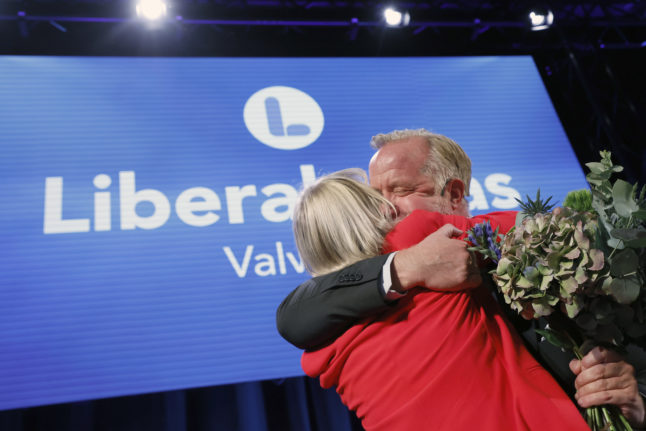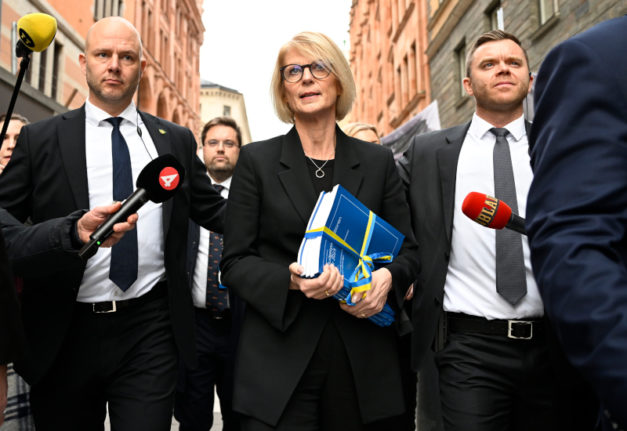According to the source, who the paper said “had insight into the negotiations to form a new government”, the four parties have also reached agreement on who should be voted in as speaker of the country’s parliament when the role goes up for a vote on Monday.
“We are counting on all parties sticking to [the agreed] line,” the source told the newspaper. “Everything is being negotiated as one comprehensive solution, as a packet, and the role of speaker is part of that whole.”
“We are agreed that we should have a stricter migration policy, and we are also agreed on having longer prison sentences for criminals,” the source added.
The talks between Kristersson’s Moderate Party, the Sweden Democrats, the Christian Democrats, and the Liberal Party have been continuing for ten days, with most of the negotiations taking place at the Moderate Party’s premises, and precautions taken so that as little as possible leaks from the discussions.
“We are not telling people where the negotiations are taking place, when they are taking place, or exactly who is involved,” the source told the newspaper. “This is about making sure that those sitting down and negotiating should be able to do it in peace.”
The talks began on the Monday after the election with one-on-one meetings between Kristersson and the other three party leaders.
But according to the newspaper’s sources, the talks have since then been led by the party officials responsible for the various policy areas, with party leaders only becoming involved to resolve the most difficult issues that come up.
According to the source, the talks are expected to take a few more weeks.
“It could take a little bit of time,” the source said. “It might take a few weeks or so. But it will definitely not take 134 days.”



 Please whitelist us to continue reading.
Please whitelist us to continue reading.
Based on the experience of 2021 migrations law, how much time (minimun) it will take to pass another major migration law? I mean are there any bindings for the government to touch all the steps like inquiry, referal? Or can they just skip the processes in order to pass the law rapidly? I would be grateful if someone with knowledge can give a probable timeline of when the changes might take place. Its important for a inmate to know their date of execution!
Sounds like frustration and disappointment abounds for immigrants of all types.
Time to consider Canada as a great alternative.
Consider the following:
– Canada has thrown the doors to immigration wide open recently.
– Accepting hundreds of thousands of new immigrants per year – virtually without standards.
– Canada has a points system that any degree holder can meet easily.
– Canadian universities are highly ranked – compare U. of Toronto, Queens, Western, and UBC to for example to top universities in Sweden (KTH, Chalmers) and you will see they compare well.
– Open minded people all with immigrant backgrounds
– A huge wave of new immigrants
– A bigger economy than Sweden
– Great outdoors activities (look up Whistler Mountain, Look up the “Gulf Islands” off Vancouver, check out the parks in Ontario and Quebec. Ski in Mount Tremblant, etc.
Consider it.